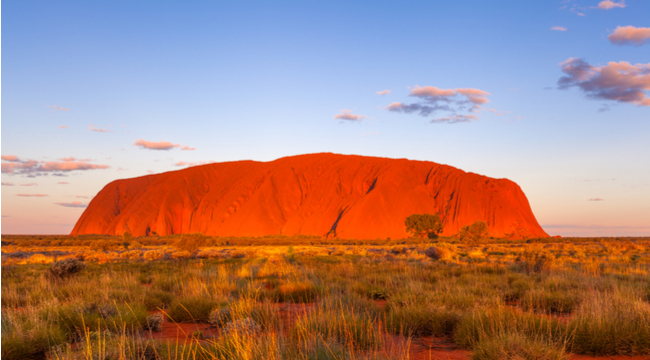
Uluru — formerly known as Ayer’s Rock — has been at the center of heated contention for years. The indigenous population has been pleading with the parks service of Australia and then tourists for decades to stop climbing the sacred rock. Now, due to a unanimous vote between the Aṉangu (who live around and protect the area) and the Australian Parks Services, you will no longer be allowed to climb Uluru.
People have been climbing Uluru for decades. Part of the reason the Aṉangu were against this practice was because of the sacred place the rock holds in their mythology. Another reason was that people keep dying trying to climb the thing. There have been 36 deaths since the 1950s which prompted the parks service to install a chain fence. That goes along with the 70+ rescues that occur on the rock every decade. Couple that with the problem of people urinating, stripping, and golfing while on top of the rock and you have more than enough reason to keep people off Uluru.
Recently, the Aṉangu installed signs that read, “the climb is not prohibited, but we prefer that, as a guest on Aṉangu land, you will choose to respect our law and culture by not climbing.” This has led to climbing declining over the years. In the 1990s, 74 percent of visitors to Uluru insisted on climbing to the top. That number fell to just 16.2 percent as of 2015. So, in a sense, the sign was working for most people who respected the culture and wishes of the Aṉangu.
Sammy Wilson, an indigenous land protector, gave an impassioned speech before the board that overseas the park and land. “Whitefellas see the land in economic terms, where Aṉangu see it as tjukurpa [Aṉangu cultural law],” Wilson implored. “If the tjukurpa is gone, so is everything. We want to hold on to our culture — if we don’t it could disappear completely in another 50 or 100 years.” Wilson went on to point out that Uluru is a sacred place where rituals and rights of passage take place for his people and it shouldn’t be treated like a “playground” for tourists.
https://www.instagram.com/p/Ba8fCEMAeGG/
The board that oversees the national park took into account that the area is already well-equipped with plenty of tourism and the urination and damage being done on the rock needed to stop. All that coupled with the fact that due to wind the climb is only open 20 percent of the time anyway and that 15 percent of people refuse to head the signs and respect the wishes Aṉangu, they voted unanimously to ban climbing.
The ban will come into effect on October 26, 2019. The date was chosen as to celebrate the 34th anniversary of the Australian government officially giving Uluru and the land around it back to the Aṉangu.
(Via ABC News)






